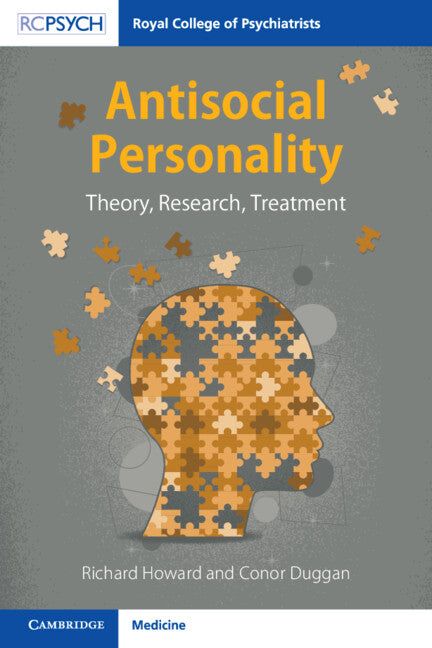Freshly Printed - allow 8 days lead
Couldn't load pickup availability
Antisocial Personality
Theory, Research, Treatment
A review of the epidemiological, interpersonal, developmental and neurobiological underpinnings of antisocial personality and its treatment.
Richard Howard (Author), Conor Duggan (Author)
9781911623984, Cambridge University Press
Paperback / softback, published 3 February 2022
220 pages
23.4 x 15.5 x 1 cm, 0.28 kg
'… after [reading] this book, clinicians will … better understand the patients they are trying to treat and thus be better able to engage where they are able and feel less frustrated in the areas they are unable to engage. This book would have been helpful in my past engagements with patients with antisocial personality disorder and I hope it will be helpful in my future encounters with this condition.' Aaron John Plattner, Doody's Reviews
It remains something of a mystery why some individuals behave in persistently malevolent and destructive ways towards their fellows, causing untold harm both to themselves and their victims. This book argues that to understand the roots of antisocial behaviour, one first has to understand what motivates the majority of people to behave prosocially - to think, feel and act in non-malevolent ways. All people are motivated to seek emotion goals - to feel thrilled and excited, to feel safe from the threats of others, to feel a sense of justice, and to feel gratified. However some individuals seek these emotion goals in antisocial ways due to an excess of emotions such as distrust, boredom, greed, vengeance and insecurity. The authors outline interpersonal and neurobiological correlates of antisocial personality, its developmental antecedents, its frequency and pattern across different societies and cultures, and different approaches to its treatment and rehabilitation.
1. The nosological background
2. Interpersonal perspective
3. Developmental perspective
4. Brain and behaviour perspective
5. Epidemiology of ASPD & psychopathy
6. Treatment I: General Approaches
7. Treatment II: Specialist Approaches
8. Legal & Ethical Issues
9. Conclusions and Future Directions.
Subject Areas: Psychiatry [MMH], Mental health services [MBPK], Abnormal psychology [JMP], Criminal or forensic psychology [JMK]


